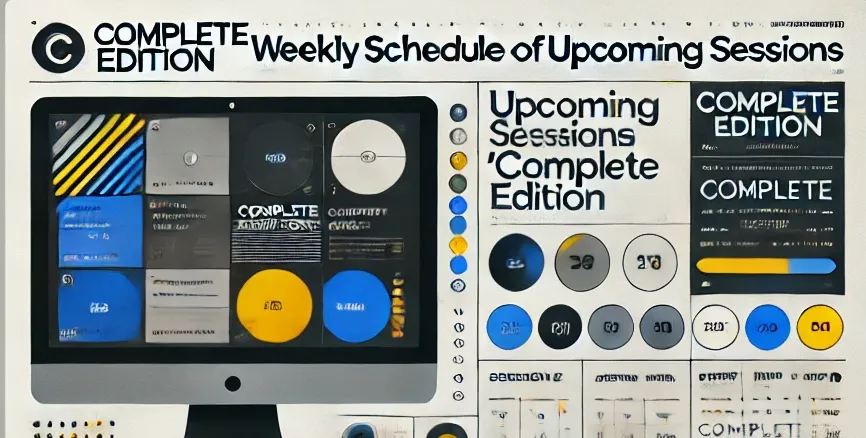What HR Professionals Wish Employees Knew (But Can’t Say Out Loud)
Aug 28, 2025Okay, let’s just be real for a second. HR gets misunderstood more than any other department. We get blamed for stuff we didn’t do, expected to fix things we didn’t break, and half the time we’re seen as either the company snitch or admins.
But behind the scenes? We’re navigating leadership egos, protecting both the company and the employees, and trying to hold the culture together with duct tape.
Here’s what HR professionals wish employees knew, but usually can’t say out loud.
The Truth About What We Actually Do
First things first, we don’t work for the employees, and we don’t work against them either. Our job is to balance the needs of the employees and the business. Think of it like being a referee. Nobody cheers for the ref, but without them the whole game falls apart.
And second, we don’t have unlimited power. People love to say, “HR didn’t approve my raise” or “HR didn’t promote me,” but you know what HR didn’t do? We didn’t create the budget. We didn’t override your VP’s decision. We didn’t magically open up a role that doesn’t exist.
Most of the time we’re recommending, advocating, and pushing behind the scenes. Sometimes we win. Sometimes we don’t. I once had to deliver a “no” on a promotion that I personally helped build the business case for. That’s how it goes sometimes. We carry out the decisions, but we don’t always make them.
Why Employees Don’t Understand Us
To be fair, some of this confusion isn’t on the employees. Historically, HR was all paperwork and policy, and a lot of people still think that’s all we do. The reality is that HR has evolved into strategic advisors, culture shapers, and internal consultants.
The thing is, we can’t always explain what we’re doing behind the scenes. Confidentiality means silence, and silence gets misunderstood. And when leadership uses us to deliver bad news, we look like the villains in their story.
How to Deal With These Misconceptions
Here’s where we move from venting to strategy. If we want to change how we’re perceived, we have to own part of that.
Practical moves:
-
Educate people early and often. Host quick “Here’s what HR actually does” sessions. Nothing fancy, just a straight talk.
-
Share the “why” behind decisions. When you roll out a policy, explain why it matters and how it supports both the business and the team.
-
Coach leadership to stop throwing us under the bus. A simple, “Hey, don’t blame HR when you made the call” can go a long way. I'm always direct and non-compromising about that. I ALWAYS remind leaders not to pin any decisions on HR that we don't have direct control of. It's just not fair. Once in a meeting a manager half-jokingly, but whole seriously said "They hold the purse strings man, I can't do anything unless they sign off on it." Well, I had time that day. So, my rebuttal was "You want to sit with me after to look at some things you can eliminate to create the budget for it?" Because what he WAS NOT going to do was insinuate that I was the reason for the employee being denied a raise. Especially when I 100% knew he was keeping a role open that he truly didn't need, making no effort to fill, and it could have certainly been reallocated to promote and pay bump an excellent employee.
Needless to say, a different tune was sung from that point forward.
How to Build Real Trust with Employees
Instead of focusing on what other people do, let’s talk about what we can do differently.
-
Be visible for the good stuff, too. Don’t just pop up when someone’s in trouble. Celebrate wins, eat in the lunchroom, and show up in ways that make you part of the culture.
-
Create safe spaces for feedback. Even if people don’t take you up on it, they’ll remember that you offered.
-
Tell the story of what HR is really doing. Did you rewrite a policy to make it more inclusive? Advocate for better benefits? Push for flexible work? Share it. We do so much invisible work, but people can’t value what they never see.
Why This Actually Matters
We will likely never make HR popular. But we can make HR effective. When people misunderstand us, they don’t trust us. When they don’t trust us, they don’t talk to us.
If we want to shape culture, influence strategy, improve engagement, or keep retention high, then people need to see us for who we really are. We are partners, advocates, and yes, sometimes the only adult in the room.
You can’t do any of that if you’re stuck in the “HR equals bad guy” box.
If this hit home for you, pass it along to another HR pro who’s out there silently screaming in staff meetings.
Don't miss a beat!
New moves, motivation, and classes delivered to your inbox.
We hate SPAM. We will never sell your information, for any reason.


